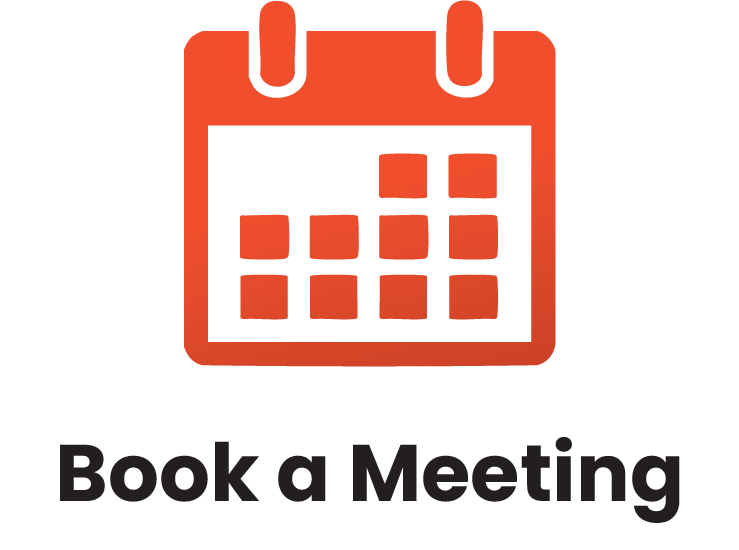Interactive training sessions led by experienced facilitators.
What is In-Person, Instructor-Led Training?
Our in-person training is delivered by a live facilitator who works directly with your team at your location. It’s our most popular format because it allows for real-time interaction, hands-on learning, and direct support.
Every session is tailored to your team’s specific goals, industry, and challenges—no generic, one-size-fits-all programs. Whether it’s a single session or a full training series, we design the experience to be relevant, practical, and fully aligned with your needs.
What is Live Webinar Training?
Live webinars are facilitator-led training sessions delivered online in real time. They’re ideal for teams working in different locations or with busy schedules.
This format offers shorter, more frequent sessions that are easy to coordinate—making it a convenient option for organizations with remote or distributed teams.
What is Virtual Classroom Training?
Virtual Classroom training is live, instructor-led training delivered online. It offers the same interactive experience as in-person sessions, with real-time discussions, group activities, and instructor feedback.
It’s a flexible option for organizations that want to reduce travel, save costs, or better fit training into busy schedules.
What is a Lunch & Learn Session?
Lunch & Learn sessions are short, facilitator-led training sessions delivered in person or online—typically during the lunch hour. They focus on specific topics or skills and offer a quick, engaging way to learn without a full-day commitment.
These sessions can be offered as one-time events or as part of a series, making them a great option for ongoing, bite-sized learning.
Online Learning
Enjoy our self-paced option and learn from anywhere!
$199.00 USD
Conducting Accurate Internet Research
As the Internet grows, it becomes more challenging to find the correct information from a reliable source in a timely manner. As research expert Gary Price puts it, “The haystack is growing and finding the needles takes more time and requires greater skill.”
This one-day course will teach students how to conduct accurate Internet research by creating a search plan, searching both the surface web and the deep web, and staying organized. Students will also learn how to think critically and find the best sources for their Internet search.
LEARNING OBJECTIVES
Learning Objectives
This one-day workshop will help you teach participants:
- Describe why Internet research skills are important
- Create a search plan
- Identify what resources are the most appropriate for your search
- Search the surface web and the deep web using a variety of tools
- Assess the credibility and validity of a website
- Organize research notes
- Cite sources and avoid plagiarism


COURSE OUTLINE
You will spend the first part of the day getting to know participants and discussing what will take place during the workshop. Students will also have an opportunity to identify their personal learning objectives.
Creating a Search Plan
Having a search plan is a very good idea whether you are doing an average search or a major research project. It can help you remain focused and find the answers you need quickly and efficiently. Here students will learn to create research questions and also consider the complexity of different type of searches and look at Internet search resources.
Searching the Surface Web
The surface web is what you delve into with a typical Internet search. This session gives students a glimpse into how search engines work and how to build a keyword list that will generate the best results for your query. This session goes through a basic search engine query step by step, dives into advanced search options, and shows how to perform quick searches for facts.
Diving Into the Deep Web
Conventional wisdom says that only about 5% of the Internet is indexed. The other 95% lies in the deep web and this session takes a look at that. Students will learn about the deep web, which contains information that students will need for most of their research queries.
Searching for Multimedia
There is a lot more to the Internet than just text, there’s plenty of multimedia resources out there as well. Search engines can index multimedia files like video, audio, and other rich media. Students will learn in this session techniques for searching for multimedia using basic search engines and specialized sites.
Assessing Research Sites
There is plenty of false information available on the Internet and therefore it’s important for your students to be able to evaluate the credibility of websites they use. This session provides a checklist to evaluate that credibility and also looks at checking facts and getting to the primary source. This session also discusses Wikipedia and what role it should play in Internet research.
Staying Organized with Research Tools
It’s very easy to get overwhelmed with the amount of information available easily at hand on the Internet. There are a number of different tools out there for your students to organize information, track sources, and manage notes. This session looks at major types of research tools.
Citing Sources
Plagiarism is not only unethical, it’s theft. Properly citing sources and referencing copyrighted works is a key skill for writers and researchers. Styles guides point the way for this, as can an understanding of what can, and cannot be, reproduced. This session looks at what plagiarism is and techniques for citing the sources.
Workshop Wrap-Up
At the end of the course, students will have an opportunity to ask questions and fill out an action plan.


















